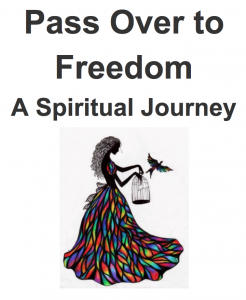
Enslaved to Twitter. Taking 7 days off for Passover holiday. Not even about Rice. Donald J. Trump (@realDonaldTrump)
The Passover holiday starts next Monday night, a week for building our awareness about our relationship to the past and working on being present for a full 50 days (from the second day of Passover through the next holiday of Shavuot—a count of 50 days).
There are a few days left to take inventory on how much procrastination resides inside your home and self. We joke in class about how much procrastination weighs (that jukebox in the basement, 350lbs) and how much procrastination weighs you down (not connecting with a friend, a ton). The opportunity costs are always present if we remain stuck in the past that no longer is relevant or no longer serves our present purposes or relationships.
The Kabbalists added the dimension of time to what is contemplated on the Passover holiday—for the only difference between bread and its alternate form of flat matzah is the amount of time the dough is allowed to rise—rising here becoming a symbol of procrastination. As it is stated: “We eat matzah (on Passover) because the slaves in Egypt did not procrastinate—they had to get out fast and did not wait for their bread to rise.
To confront our relationship with the past, we shift into a faster gear and chew on that which keeps us enslaved—the diet that we have accustomed ourselves to may be habitual instead of invigorating. As long as there is bread, there will be its counter-bread—matzah. In order for it to fulfill its spiritual aim and not be habitual, each chew of matzah is an eschew of the habitual past—an examination of what is unexamined about our relationship to the past and our procrastination.
Please find attached the Kabbalah Experience Passover Hagaddah © David Sanders









1 Comment
Wendy Davis · April 15, 2017 at 5:04 pm
Thanks, David.